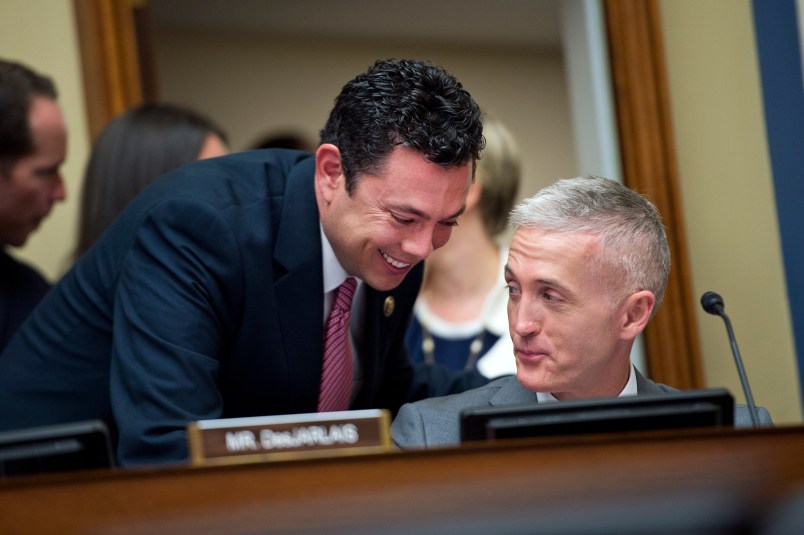As Hillary Clinton gets ready for the first Democratic nomination debate tonight and testimony before the ‘Benghazi Committee’ later this month, the tables are suddenly dramatically turned. Ever since ‘Benghazi’ got pulled into the maelstrom of the House GOP leadership debacle with former-future Speaker Kevin McCarthy’s ill-considered frankness about the political priorities of the ‘Benghazi’ ‘investigation’, everything’s changed. There are calls for the committee to be disbanded. Everyone associated with it is on the defensive. And now suddenly there’s a former committee investigator suing over wrongful termination because he claims he refused to focus the entire investigation on Hillary Clinton.
The most notable change is the attitude of the Beltway press corps. After a year of peddling selectively leaked transcripts and hyperventilating over and repeating tendentious readings of unexceptional process stories, suddenly everyone is asking whether it could possibly be true that this was just a political witch hunt all along.
Let’s set aside whether it’s a witch hunt or even what it is. What it is has been obvious all along to anyone paying attention with even the most baseline level intelligence and experience. And yet it took an offhand remark from Kevin McCarthy to suddenly make the obvious discussable. Step back and think about it and that’s amazing. Why didn’t reporters feel empowered to pose these completely obvious questions absent McCarthy’s remarks? It’s been out there totally in plain sight all along. How could journalists of all people either be oblivious to this or not feel they had permission to discuss it?
Before driving in another shiv, let’s step back to say that it’s hardly surprising that a congressional probe mounted by either party has political dimensions. It’s part of the cynical genius of our system that both parties are given political incentives to uncover wrongdoing on the part of the other party. This is a feature of the system, not a glitch.
The question is whether you find any goods on the other guys that merits whatever political advantage you seek to draw. The other question is whether the effort is run with even a modicum of procedural fairness, transparency or even honesty about what’s going on. Then finally, is the focus of the attack in any clear way tied to what you’re investigating? On each of these fronts, the Gowdy/Benghazi committee has been a colossal joke – one of the main reasons it’s come under such withering attack once prestige journalists decided to actually consider the work it was doing.
When the legendary former Rep. Henry Waxman (D-CA) did his probes they routinely revealed substantial wrongdoing and maps for possible legislative change – especially when they were focused on the private sector. Take a look at this book for an understanding of Waxman’s record. At the same time, Waxman’s probes of the government itself often paid political dividends for Democrats. But when they did so, they usually found the goods.
One point to recognize is that it’s inherently difficult to probe or seek to reform government when you don’t believe in government in the first place – when you actually want to break it. But again, why do prestige journalists need an off-hand remark like McCarthy’s before they feel they have permission to say or look at the obvious?






